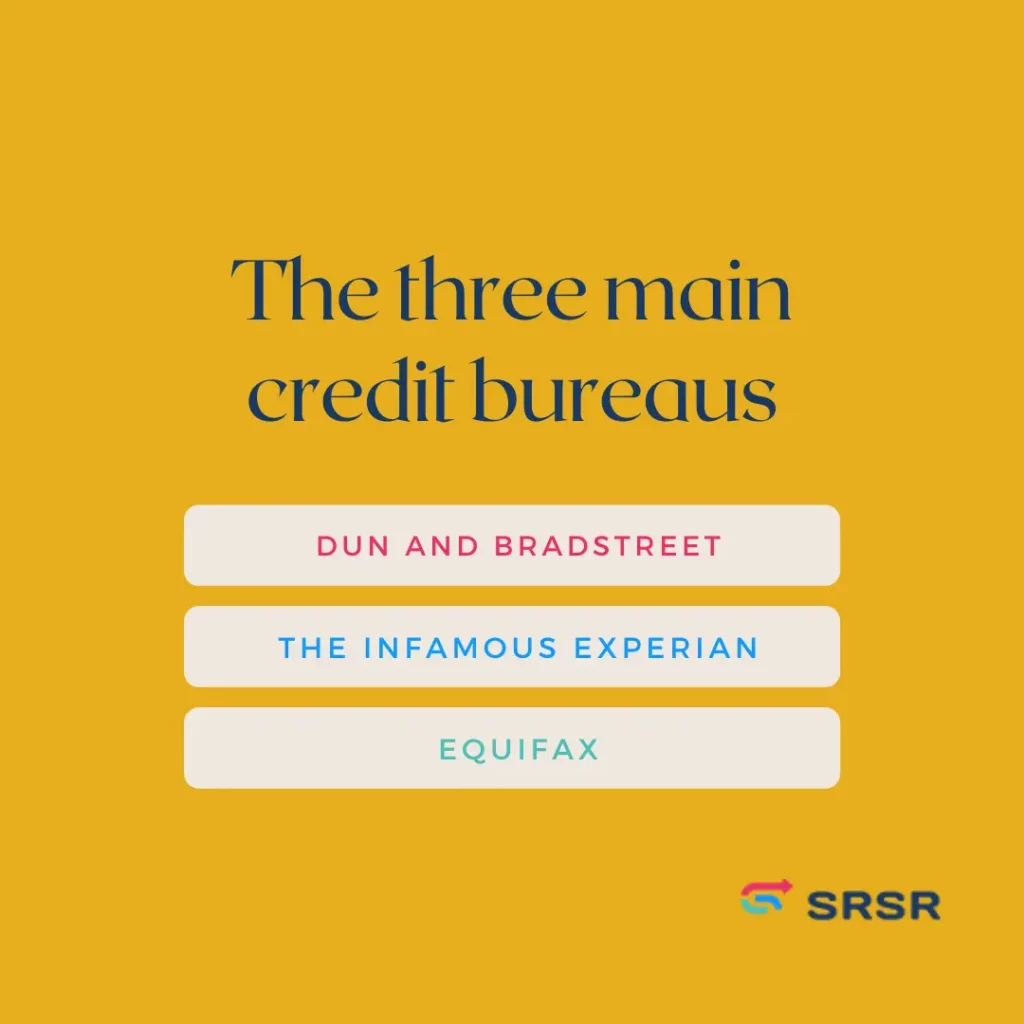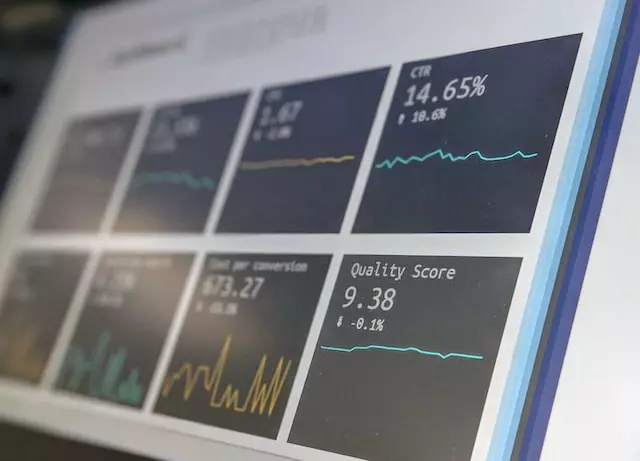Your business credit score – why it matters and how to check it
Do you want to scale your business and get a competitive loan? Are you considering a line of credit and other financing forms? A business credit score can increase your chances and success rate.
It serves as a detailed insight into a firm’s credit health and reliability. Lenders and vendors use it to judge how creditworthy and trustworthy a business is.
While a business credit score is similar to a personal credit score, they are two different components. In this guide, you will find out what a business credit score is, how it works, its benefits, and how to check your business credit score.
What is a business credit score?
For many business owners, there is a thin line between their personal lives and business. They are the business and the business is them. This rationale, however, cannot be applied to business credit scores.
Your credit score can’t be used for business, but it can give insight into how business credit score works.
A personal credit score is a numerical rating that shows the lender whether you have the financial backing to refund a loan if given.
Likewise, a business credit score establishes financial health for businesses. Lenders are always looking for ways to scrutinize businesses while giving out loans, so they source for information to ensure they are embarking on a profitable venture.
The difference between a business credit score and a personal credit score
While there are striking similarities between both, there are various ways these two types of scores differ. They are:
- Tracking: Business credit scores can be tracked by business name, address, and EIN, while a personal credit score uses social security numbers.
- The score ranges: Business credit scores are ranked between 1-100, while personal credit scores are ranked from 300-850.
- Ownership: A personal credit account is owned by an individual for their whole life, while a business can change ownership and possession if it is acquired, merged, or shut down.
- Discrepancy: Individuals can challenge the credit bureau about an error if they are confident it isn’t correct and are obligated to respond. But, for businesses, credit bureaus are under no such obligation.
- Credit utilization: Businesses have higher debt capacity and a higher debt withdrawal limit than personal credit scores.
- Accuracy: Personal credit reports barely contain an error. An individual can calculate it without the aid of a reporting agency, while business credit reports are sometimes subject to errors. It’s due to missing information at the point of publication. It can affect the success score.
- Transparency is crucial in a business. A business credit score is publicly available to prospective lenders, while a personal credit score is only available upon request by the lender.
- Businesses can have several credit scores. The three major credit bureaus are Experian, Equifax, and Dun & Bradstreet; they calculate and identify business credit scores.
How do business credit scores work?

Several factors determine business credit scores to indicate that a business is performing well. They are:
- Creditworthiness: Lenders meet with reporting agencies to check how long a business has been existing and its credit history. Businesses with longer financial reliability and stability will likely get higher scores than newer brands.
- Loan repayment history: A business’s chances to get a higher business credit score are low if it made late payments in the past, whether a one-time or a recurring event.
- Debt ratio: Also referred to as debt utilization, it is the credit ratio used by a business. It is to ascertain if a company is constantly borrowing and taking on too much debt.
- Records: A business with a bankruptcy history, collection notice, and other financial instability records will have a low business credit score.
- Statistics: Reporting agencies score businesses based on the risk associated with the industry, demography, and size.
- Business health score: This test analyzes a business’s health and propensity to go bankrupt in the next year. Thus, it’s considered while analyzing credit scores.
Benefits of business credit score
Having access to good credit is one of the advantages of a high business credit score, but it doesn’t end there. We have compiled a list of other advantages of maintaining a healthy business credit score.
- It makes more money available for your business. With good creditworthiness, a business has more credit options.
- With an excellent business credit score, you can get credit without personal guarantees and collateral, which reduces your personal assets exposure.
- It gives you a competitive edge over other businesses with low credit rates. You can finance your business with more debt and little equity.
- Expansion becomes easy and efficiency can be achieved
- You’ll have more flexibility in obtaining the capital you need for your business.
How to check your business credit score?
Now that you understand what a business score is, how it operates, and its benefits, let’s take a step further to check how it works and ascertain if you are qualified for it.

To know your business score, check out these three main credit bureaus. They are:
1. Dun and Bradstreet
To get a business credit score from Dun & Bradstreet, you will need a D-U-N-S number. To qualify for this, you must apply for a 30-day waiting period to receive it. Once allotted, the credit bureau will rate your firm’s financial health and stability to allocate a Paydex and a success score.
Paydex analyzes payment performance and rates companies from 0-100, while the delinquency score ranges from 101-670, and analyzes the probability of a business paying late in the next one-year trading period. A higher score implies a lower risk.
Lastly, the failure score range spans between 1001-1875 and foresees a business propensity to file for bankruptcy without clearing its debt within the next year’s trading period. A low failure score indicates a high risk.
Dun & Bradstreet offers a free Paydex analysis and several other credit scores. However, an upgraded subscription is essential and can be accessed for $15 monthly to enjoy a deeper insight and analysis.
2. The Infamous Experian
Experian credit bureau provides a report that extensively analyzes a business credit score, risk exposure rating, account and payment histories, and trends.
It focuses on the credit score (1-100) and how repayment is made.
To ascertain financial stability, it focuses on the likelihood of repayment, and bankruptcy proximity within the next 365 days, putting into consideration the commercial collection accounts, debt utilization, demographic factors, and firm risks. A high score implies low financial distress and fit for business credit.
You can obtain your credit score report through their official website for $40 per report or opt for a yearly subscription to access credit reports, scrutinizing, and extra analysis for $189.
3. Equifax
Like the other two reporting agencies, Equifax credit report offers varying reports ranging from credit risk, payment index, and failure risk to diagnose business health.
The credit risk score rates from 101-992 and analyzes the business chances and failure rate. The payment index score ranges from 1-100 to determine payment history and pattern, while the failure score aims to foresee the likelihood that a business will go bankrupt in the next 365 days. A higher score indicates great financial health.
Equifax offers credit reports at no cost but with a few conditions attached. The conditions are:
- Businesses cannot get a credit report if they are not applying for a loan or a credit card.
- To qualify for a credit report, businesses must contact Equifax officials to provide substantial proof of application for a business loan or credit card.
The deciding factors in a business credit score
The three major credit bureaus study different components when optimizing business credit scores but mostly focus on these subject matters:
- The age and size of the company
- The company’s financial account longevity
- Repayment history to vendor and lender
The implications of a credit score
It’s a known fact that creditors and lenders check business credit scores to determine worthiness. But it doesn’t end there. The other rationale behind it is:
- Ascertain borrowing power: The credit score can decide how much funding you can secure.
- Rates: Insurance providers use credit reports to evaluate the rate to add to your commercial insurance.
- Payment plan: Creditors and suppliers can determine how long you can go before your repayment is due by looking at your credit report score. A higher business credit may secure a long-term payment plan.
How to build your business credit score
A low business credit score makes it difficult to access credit, which can limit the choices you can make as a business and your ability to scale. That’s why you need to pay close attention to your score in every stage of business.
You can maintain and build a good credit score by making prompt payments, creating a sustainable trade line with vendors, and working with registered lenders who do business with the credit bureau.
Conclusion
Building and maintaining a robust credit score is one of the most pivotal things you can do for the health of your business. Doing so will open and position you for opportunities that make growing a business easier.

